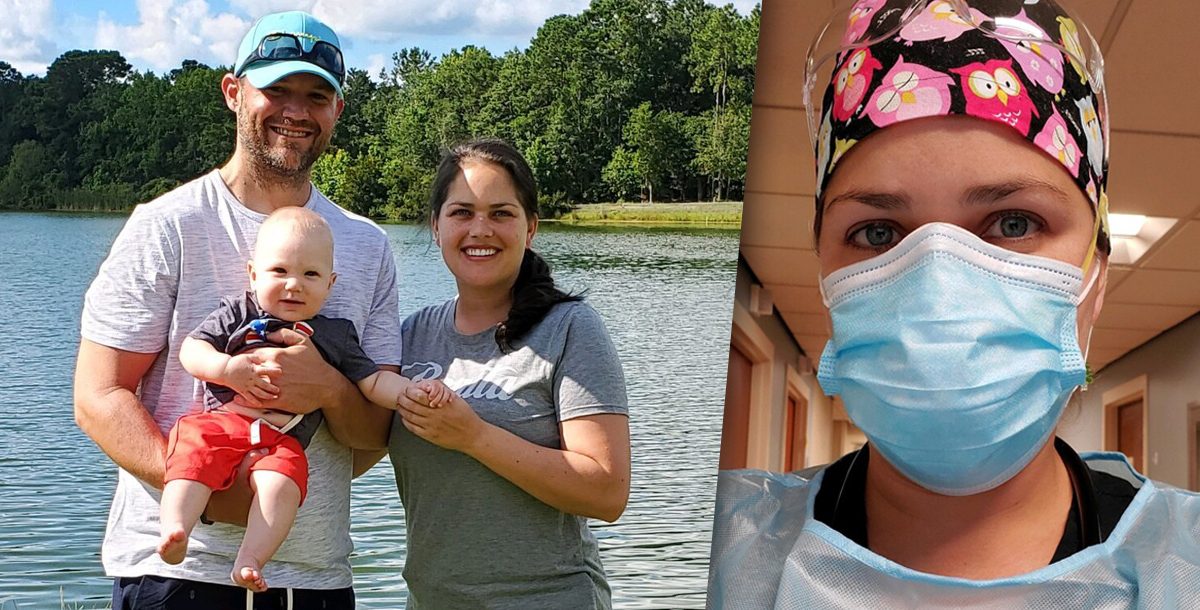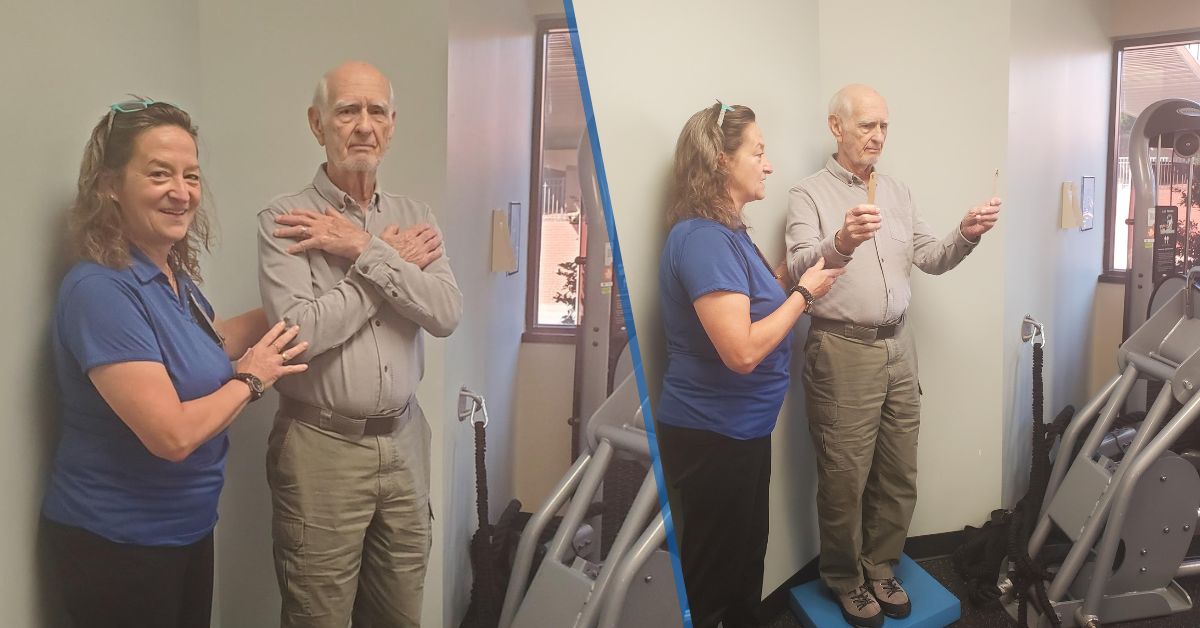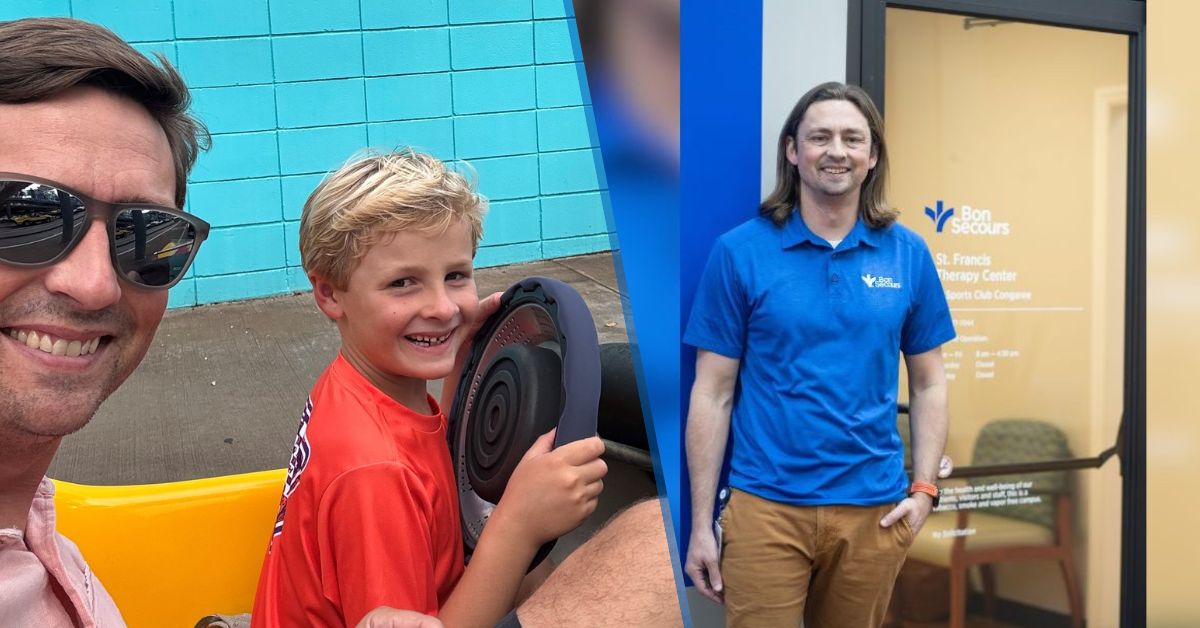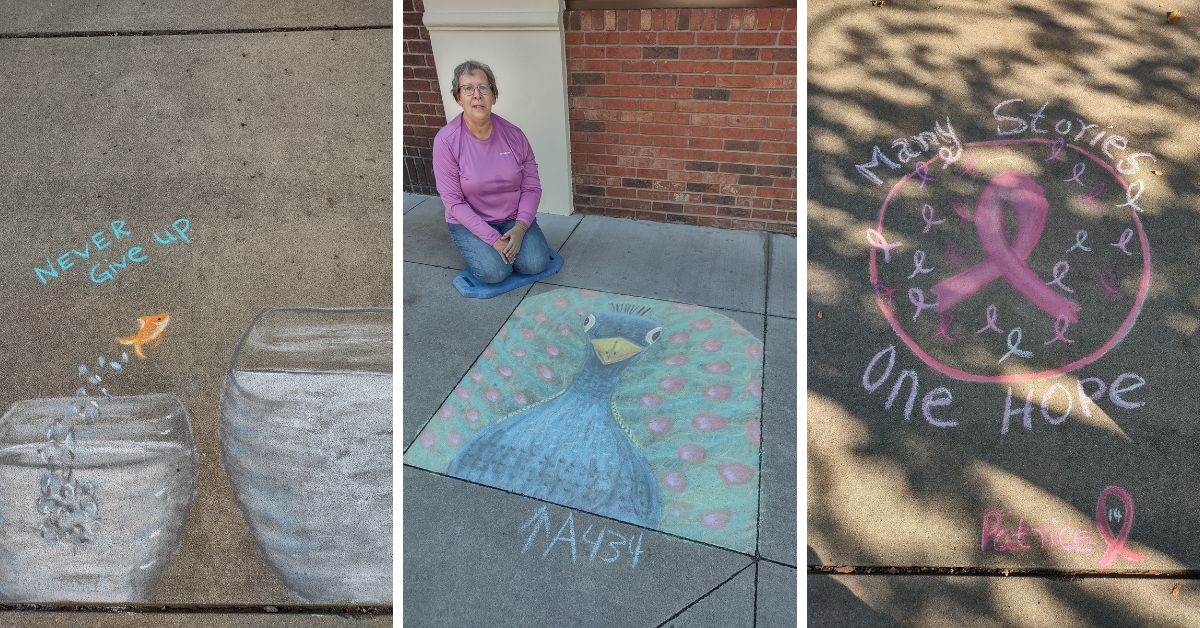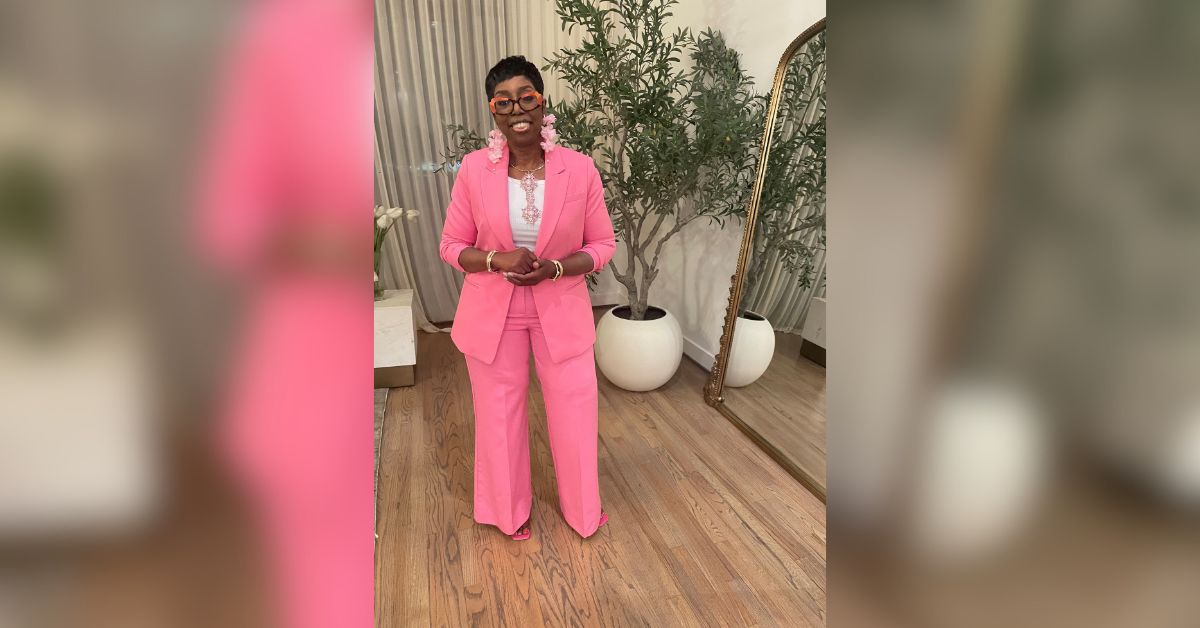It’s been a year since our country became consumed with COVID-19. It was the beginning of business shutdowns and stay-at-home orders. And for Melinda Fix, a respiratory therapist at Bon Secours St. Francis Downtown, the anniversary comes on the heels of another one-year milestone for her family.
“Raising a baby during a pandemic was not what I pictured at all!” she shares.
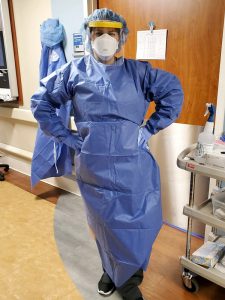
Melinda gave birth to her first child in December 2019. At first, she felt she was prepared for the changes motherhood would bring, but not the ones she would find waiting at work when she returned from maternity leave. At the time, it was one week before the COVID-19 lockdowns began.
“I remember coming back, and it was very stressful – us just trying to figure out what to do to protect both ourselves and our patients. It seemed to come all at once,” she recalls. “In the very beginning, we weren’t sure how it was transmitted. I think that was the scariest part of it all. We weren’t sure if it stayed on our clothing. With a 3-month-old at home, that was terrifying to think about.”
She describes the tiresome process of taking off all her clothes in the garage, before even entering the house, and then immediately heading to the shower for a good scrub down before even being able to lay eyes on her family. Still, she says she was grateful to be able to come home to them after working long, sometimes hard, hours at the hospital.
“I couldn’t quarantine from my family, but a lot of my co-workers did do that – self-quarantine in their own homes, away from their families.”
Many families were separated as a result of the pandemic, something Melinda was especially worried about when it came to her patients.
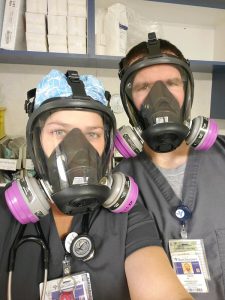
“We weren’t allowing visitors, and I know they were fearful, because they didn’t feel well. There was so much unknown, and they didn’t know what was going on with their own bodies,” says Melinda. “That was the hardest part – knowing they didn’t have someone there holding their hand. So, we would try to take our time to do that – be there to comfort them, make sure they were okay, let them know they weren’t alone in this. That was my biggest priority, because if it was my family, I would want someone there for them.”
In fact, that extra time spent comforting patients was often what got Melinda and her co-workers through the most grueling stretches of the COVID-19 pandemic. She recalls one patient who spent months in the hospital – many of which were on a ventilator in the intensive care unit (ICU).
“I treated him several times and while in there, I’d talk to him. Well, he finally started improving and was able to move out of the ICU to another floor. One day I was talking to him and he said, ‘I think I recognize your voice. I remember you talking to me when I was asleep.’ He was talking about when he’d been on a breathing machine and knowing he’d been able to hear me really brightened my spirits. There’s definitely some comfort in knowing that it makes a difference.”
Melinda also gives a lot of credit to the community with giving her and other frontline health care workers the support they needed to carry on.
“I am very thankful for the way the community has embraced us. Whenever we’d start feeling really down and drained, it was as if they knew. We would get donations or thank you cards. One church had kids write us notes, and that just lifts your spirits, to see even young kids understand this is something serious but they know they’ll be taken care of.”
Melinda is also grateful the community did its part to stop the spread by quarantining when necessary, wearing masks and social distancing.
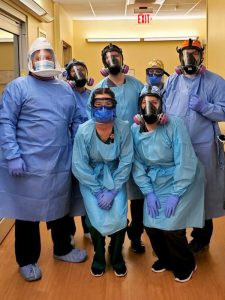
“I think we all get to that point of wondering, ‘When is this going to end?’ But I think people were aware this was something serious and them taking those steps makes a huge difference. We can only do so much in the hospital to protect ourselves. Everyone else has to do their part to help us.”
Additionally, Melinda believes technology like video chatting and other modern-day conveniences including food and grocery delivery, have helped immensely.
“We have comfort in our own homes, and even apart, we’re still able to spend time with family. I think those have helped our community to bond together more as we’ve gone through something none of us ever expected we’d have to go through.”
As the COVID-19 vaccine rollout continues and numbers begin to improve, Melinda is hopeful for the future. However, knowing things still aren’t back to ‘normal,’ she has this message for families.
“Just breathe, and we’ll get through this together… know we’re still caring for your family members as if they were our own. We’re making sure they don’t feel alone and trying to get them better as quickly as possible so they can get back home to their loved ones. That’s what helps push me through each day.”
Stay updated on what Bon Secours is doing related to COVID-19.

